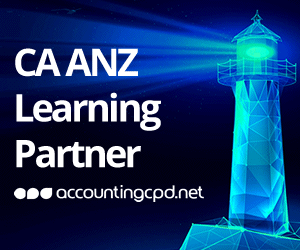Updated capability model to help shape profession of the future
CA ANZ has recently updated the CA Capability Model to ensure that the framework remains relevant, future focused and equips accounting professionals with the necessary skills to stay ahead and succeed in the future workplace.
In brief
- Updated Capability Model to guide and strengthen the development of the accounting profession
- Capabilities of ‘accountant of the future’ explained in model backed by extensive research
- The Model will improve firms’ and individuals’ ability to be flexible, innovative, adaptable, and responsive

The model outlines the ideal skills, knowledge, personal attributes and experiences of accountants at different stages of their career. It is the product of extensive research and broad consultation as a strategic response to the disruptive changes in the profession with advancing technology and business processes worldwide.
"With employers globally anticipating a 44% skill disruption in the next five years, it is essential that accounting and finance professionals develop transferable interdisciplinary skills such as critical thinking, problem-solving, communication, and other professional skills and attributes. These capabilities alongside technical expertise, curiosity and a lifelong learning mindset will ensure our members stay ahead and take advantage of the opportunities in the rapidly evolving labour market."
New technology has disrupted almost every job and profession, affecting people's roles and work activities, and radically changing employers' expectations of the skilled workforce they need to navigate future growth.
As part of our strategic response to these changes, CA ANZ has refreshed our Capability Model to inform and guide the development of the accounting profession.
The model arose from an extensive process of research and consultation that began in late 2017. In 2023, the Capability Model has been updated drawing on global research, feedback from member organisations, specific member research and consultation with a broad cross-section of stakeholders from individual members to subject-matter experts and advisory committees
Participants were asked:
- Which non-technical capabilities are most relevant to current work and important to develop for future work roles?
- Which capabilities are perceived to be the highest priorities for Chartered Accountants ANZ members?
- Which capabilities should Chartered Accountants ANZ focus on to build a sustainable future for our profession?
We know from research that accounting is being transformed due to such factors as technology, green transition and economic pressures. As many clerical roles are being displaced due to automation, and change occurs at increased speed, it is vital our members are ready to move seamlessly into emerging and new careers or modes of working.
The model assists finance and accounting professionals to understand the important capabilities required for them to stay relevant in the evolving landscape of the future job market.
The Capability Model is structured around four 'Domains' – Business (business context), Leadership (people and future), Personal (mindset and intellect) and Technical (professional expertise). These are applied to the four different stages of an accountant's career: pathway, early-career, leader and executive.
The Model will improve firms' and individuals' ability to be flexible, innovate, adapt, and respond with agility and maintain resilience in the face of challenges.
The domains also consider emotions and cognitive factors to provide an insight into the skills, knowledge, personal attributes and mindsets that an accountant should develop throughout their career. Employability in a world where the nature of work is changing will be invaluable.
The Capability Model's scaffolding is mapped to the tertiary training available for prospective accountants, specifically the graduate attributes or learning outcomes that are a regulatory requirement.
As a professional body, CA ANZ sought to ensure that the Capability Mode responds to what we know employers are looking for. Our research demonstrates that these professional skills extend beyond discipline-specific curricula.
The model links the development of these capabilities to the CA Program itself and informs the continuing professional development (CPD) that reinforces the lifelong journey of a CA ANZ member.
Our research suggests that accountants of the future will face exciting and creative roles, helping to:
- expand and deepen business relationships with clients in all industries, with more flair dynamism and online contact. translate complex data and present it to clients in an easily understandable and relevant format.
- formulate strategy for clients, conduct feasibility studies, business cases, compliance audits, risk analysis and evaluate transformation programs, as they become an integral lever in their clients' progress.
The Capability Model is a conversation starter and an impetus to encourage people to reflect on the capabilities critical for their future success, individually or as leaders within their own businesses or firms.
The model has informed the creation of Capability+ online self-assessment tools that provides members the opportunity to evaluate themselves against relevant capabilities in the Model and compare their profile to the requirements for their current or future role. The platform provides personalised learning recommendations based on existing gaps.

